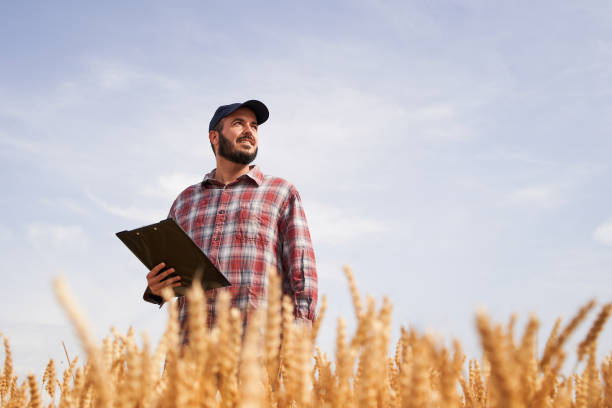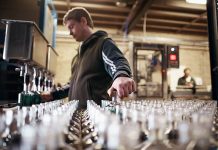Is farming/seeds/milling a good career path? The agriculture industry has been an integral part of human civilization for millennia, providing sustenance, resources, and economic opportunities.
In the modern era, farming, seeds, and milling continue to play crucial roles in the global food supply chain and numerous other industries.
As the world’s population grows, there is an increasing demand for skilled professionals to contribute to the sustainable production of food, development of superior crop varieties, and efficient processing of agricultural products.
The question of whether farming, seeds, and milling represent a good career path is a pertinent one, especially as societies become more conscious of the environmental impact and technological advancements reshape traditional practices.
In this comprehensive guide, we will delve into the various aspects of these career choices, shedding light on the opportunities they offer, the challenges they entail, and the potential for personal and professional growth.
Whether you have a green thumb, a scientific inclination, or a fascination with the intricate processes of milling and food production, this article will help you gain a deeper understanding of the rewards and complexities associated with pursuing a career in farming, seeds, or milling.
By exploring the dynamic and evolving landscape of these fields, we hope to empower individuals to chart their paths in a way that aligns with their interests, values, and aspirations, while contributing meaningfully to the sustainable growth of the agriculture industry.
Also Read:
Is Air Freight/Delivery Services a Good Career Path?
Is Containers/Packaging a Good Career Path?
Is Farming/Seeds/Milling a Good Career Path?
Farming, seeds, and milling can indeed offer a rewarding and fulfilling career path for individuals with a passion for agriculture and a commitment to sustainable food production.
These interconnected fields play a fundamental role in addressing global challenges like food security, climate change, and environmental conservation.
A career in farming provides the opportunity to work closely with the land, cultivating crops, and raising livestock.
It allows individuals to connect with nature, witness the fruits of their labor, and contribute directly to the production of essential food resources.
Moreover, advancements in agricultural technology have introduced innovative practices, increasing efficiency and sustainability in farming.
Seed science and crop research careers are equally promising, as they involve developing improved crop varieties that are more resistant to pests, diseases, and changing climate conditions.
Professionals in this field contribute to enhancing crop yields, ensuring food safety, and promoting biodiversity.
Milling, as a vital part of the agriculture value chain, transforms raw agricultural products into processed goods ready for consumption.
It offers a range of career opportunities in processing, quality control, and supply chain management.
Despite the promising aspects, there are challenges in the form of unpredictable weather patterns, market fluctuations, and resource constraints.
Additionally, sustainable practices and responsible resource management are crucial to address environmental concerns.
Overall, for those driven by a deep appreciation for agriculture and the desire to make a meaningful impact on food production, a career in farming, seeds, or milling can be immensely rewarding.
By embracing innovation, sustainability, and resilience, individuals can forge a successful and purposeful path in these essential sectors, contributing to the well-being of humanity and the planet.
Skills and Qualifications for Success in Farming/Seeds/Milling
Success in farming, seeds, and milling relies on a diverse set of skills and qualifications.
Strong agricultural knowledge, including crop management, soil science, and pest control, is vital for effective farming.
Seed scientists require expertise in genetics, biotechnology, and plant breeding to develop superior crop varieties.
In milling, technical proficiency in operating machinery and quality control is essential.
Additionally, problem-solving, adaptability, and a commitment to sustainability are crucial traits.
Formal education in agriculture, plant sciences, or related fields provides a solid foundation, while hands-on experience and continuous learning are equally valuable for thriving in these interconnected industries.
Challenges and Opportunities in Farming/Seeds/Milling
Farming, seeds, and milling present a unique blend of challenges and opportunities in the ever-evolving landscape of agriculture.
Climate change remains a significant challenge, with unpredictable weather patterns affecting crop yields and requiring adaptation strategies.
The increasing global demand for food also puts pressure on sustainable production practices.
However, these challenges open doors to various opportunities.
Advancements in technology, such as precision farming and genetic engineering, offer innovative solutions to increase productivity and resilience.
The growing focus on sustainable agriculture creates opportunities for eco-friendly practices, organic farming, and niche markets.
Additionally, the need for food security has spurred investments in seed research, leading to the development of high-yield and climate-resilient crop varieties.
Moreover, the milling industry benefits from increasing consumer demand for processed food products, driving innovation and automation in processing methods.
As awareness of food safety and quality grows, the industry has a chance to improve standards and increase market competitiveness.
Overall, while challenges persist, proactive and innovative approaches in farming, seeds, and milling can unlock a world of opportunities for professionals to contribute to a sustainable and thriving agriculture sector.
Also Read:
Is Steel/Iron Ore a Good Career Path?
Is Broadcasting a Good Career Path?
Conclusion
Farming, seeds, and milling offer promising and fulfilling career paths for individuals passionate about agriculture and sustainable food production.
These interconnected fields play critical roles in addressing global challenges like food security and climate change.
While challenges such as unpredictable weather patterns and market fluctuations exist, advancements in technology and a growing focus on sustainability create exciting opportunities for innovation and impact.
Success in these careers requires a diverse skill set, formal education, and hands-on experience.
By embracing innovation, resilience, and a commitment to sustainability, individuals can forge rewarding and purposeful paths, contributing to the well-being of humanity and the planet through their work in farming, seeds, or milling.










